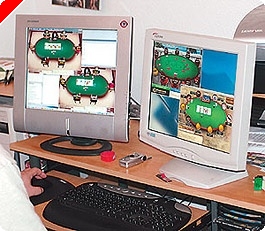Study Supports Regulation of Online Gambling

The growing chorus of voices calling for an end to the ban on internet gambling has just added two unexpected members – associate professors Kathryn LaTour, from the University of Nevada, Las Vegas, and June Cotte, from the University of Western Ontario in Canada – but not because these self-described non-gamblers support internet gambling. Rather, they see lifting the ban as a necessary precursor to the implementation of effective regulation of the industry.
LaTour and Cotte co-authored a report, to be published next February in the Journal of Consumer Research, entitled "Blackjack in the Kitchen: Understanding Online Versus Casino Gambling" in which they recommend the full legalization and regulation of online gambling in the United States and Canada in order to reduce some of the activity's harmful effects.
The two did not expect their study to yield such a result. "If you told me I was going to come to that conclusion at the start of research I would have laughed," said Cotte. But, after interviewing 20 regular casino gamblers and 10 regular online gamblers, they found differences which they found troubling and which led them to their conclusion that online gambling needs to be legalized so that it can be regulated. According to their study, online gamblers gambled more frequently and aggressively, gambled for longer hours at a time, and had a less accurate idea about their losses than their casino-playing counterparts.
For the researchers, the current ban on internet gambling is not the answer. "The horse is out of the barn," said Cotte. Indeed, the non-gambling professor was shocked to find the industry was already bringing in $12 billion to $15 billion a year. "There is a huge amount of people who are already doing this," she said. Instead of maintaining the ban, which only serves to move internet gambling off shore, the study suggests ways in which the industry could be regulated to deal with some of its potential for harm.
"You could require the North American online casinos to have things like cooling-off periods, where if you run out of money you don't instantaneously hit a button and upload some more. In a casino, if you run out of cash, you at least have to walk to an ATM," Cotte said.
Other suggestions include the implementation of a pop-up notice on a site to alert the user that they have crossed a threshold in the amount of money lost and/or the amount of time spent at the site. They also recommended increasing the size of the wins or losses on the page so that users could more easily track their transactions. On-line counseling, information of treatment for problem gambling, and strict age checks could also be added to the regulations of the gambling sites. In addition to integrating safety features into legalized online gambling sites, both researchers thought regulating the industry could lead to increased revenue. "There are a lot of tax dollars out there that could be collected," LaTour said.








